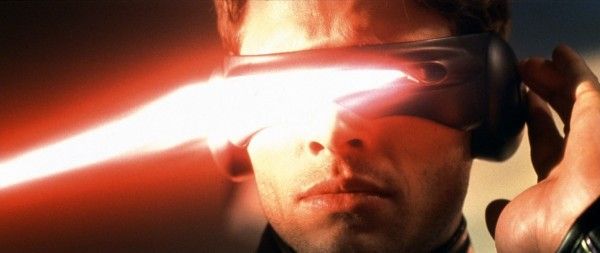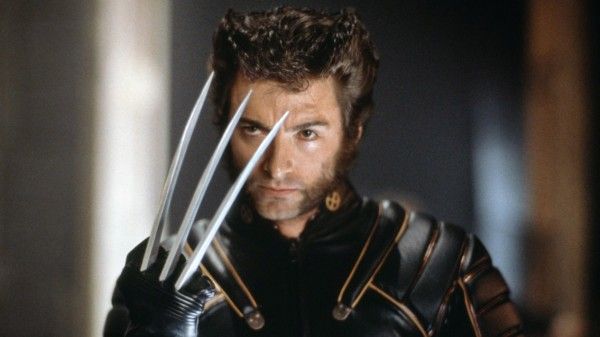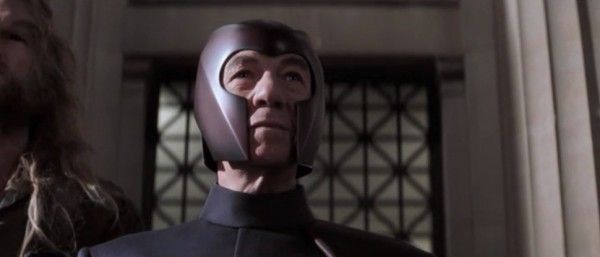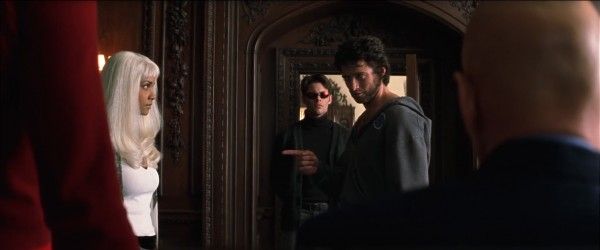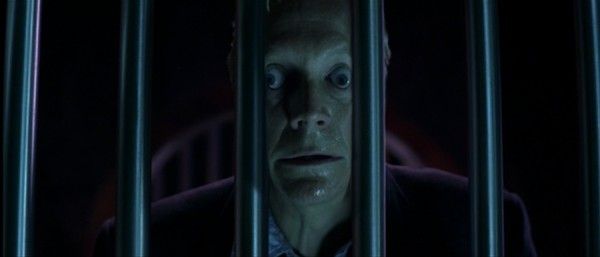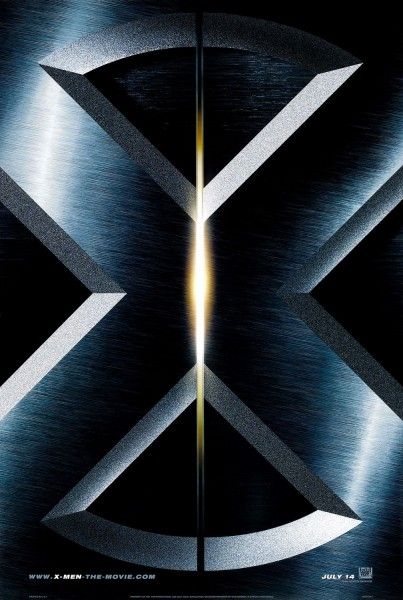[This is a re-post of my retrospective series in which I take a look back at the X-Men movies. These articles do not contain spoilers for X-Men: Apocalypse. If you know any spoilers about X-Men: Apocalypse, please do not post them in the comments section.]
I'll always have a soft spot for X-Men. They had a huge impact on my life. I still remember watching the first episode of the animated series with I was eight-years-old, and from there I went down a very geeky road. I collected the X-Men cards, constantly tried and failed at drawing X-Men, and even attempted to keep up with the comics, although I could never quite get hooked. Before the X-Men, I knew Superman and Batman from their live-action series, but the X-Men changed my perception of what superheroes could be and do.
Cut forward eight years later, and the X-Men were now coming to a theater near me. The mutants were here to save the day and make way for a geekier tomorrow even if they weren't quite sure how to do it.
Director Bryan Singer and screenwriter David Hayter make a bold move in how they begin X-Men. They don't start by introducing any of the heroes; they do an origin story for the villain, and that origin takes place in a concentration camp. Then he moves to a girl whose first kiss almost kills her boyfriend. Meanwhile, Senator Kelly (Bruce Davidson) wants a "Mutant Registration Act", and the wheelchair bound psychic Charles Xavier (Patrick Stewart) believes that super-powered mutants can peacefully co-exist with humans while his old friend Erik Lehnsherr aka Magneto (Ian McKellen) believes that mutants are the future, and doesn't want to relive the same persecution he experienced as a boy.
This is also a movie where people can fly and shoot energy blasts from their eyeballs.
X-Men may be a superhero movie, but when it came out in 2000, it defied easy comparison to the other blockbusters in the genre. Spawn and Blade had kept the genre alive since the implosion caused by Batman & Robin, but X-Men was the first major comic to take a shot at the box office, and it was on uneasy ground. Singer knew they couldn't go too campy, but how serious could they go without making the movie a bummer? What were the boundaries? Singer was trying to find the path by walking it and X-Men has become fascinating for how it tried to get a mainstream audience to accept things comic book fans took for granted.
The collapse of the Batman franchise coupled with the lack of another major superhero title in the marketplace gave Singer both freedom and caution in equal measure. He had the freedom to start his movie in a concentration camp, but then he had to figure out how to give characters names like "Magneto", "Cyclops," and "Storm". Singer needed to find the balance between what was essential and what could be discarded. He knew he could get away with making Rogue a teenager with only her lifeforce-drain ability, and he even aroused the ire of fans online when early photos didn't show her signature hair-stripe. He went with a younger Storm rather than the older, wiser version. He also made Sabertooth a brute rather than Wolverine's archenemy.
Then there were trickier, more "comic-book" elements, and this included the little details. The costumes were good, the visual effects were where they needed to be with regards to Mystique's transformations, Wolverine's claws, Cyclops' optic blasts, etc. But imagine if the "Snikt" sounded off, or Wolverine's hair wasn't right. Most importantly, imagine if they had miscast Wolverine entirely.
Of course, we know that casting Hugh Jackman as Wolverine was perfect. He nailed the tone, the comic timing, the irreverence, and could bring a grin to your face by saying, "Bub." Dougray Scott originally had the part, but he had to go do Mission: Impossible 2, so they took an unknown Australian actor and gave him a life-changing, career-defining role that would be scrutinized by fans the world over ("He's too tall!" was my favorite criticism because it was so ridiculous). When I think about this simple twist of fate, I'm amazed Scott didn't put his head in an oven. If you want to know what perseverance looks like, look at Dougray Scott.
The rest of the cast ranges from pitch-perfect to slightly off. Patrick Stewart as Xavier is pure fan-casting, and it works perfectly. Ian McKellen had worked with Singer before on Apt Pupil, and casting him as Magneto was an inspired decision. The rest of the cast fits their roles fairly well. No one is egregiously miscast based on the definitions of their role. You can get Tyler Mane to play a brute; you can get a traditionally handsome guy like James Marsden to play Scott Summers. Anna Paquin may be younger than Rogue from the comics, but there needs to be a surrogate for the teenagers in the audience; someone who can relate to the awkwardness and alienation these young fans might feel, and Rogue is perfect for it. An age-appropriate alternative would have been Kitty Pryde, but Rogue's ability is better for the (admittedly silly) plot. The only misstep is Halle Berry is Storm, not because she's too young, but because she didn't know what to do with the accent. The character is African in the comics, so Berry decided to put on a bad African accent and no one said, "Yeah, we've already made your character younger, so perhaps there's no need to stay faithful to an accent that's not working."
This ambivalence about where to stay faithful and how to relate to a mainstream audience is the crux of where X-Men fails and succeeds. It has the courage to embrace the civil rights subtext of the original comics and update it from racial tension to the current persecution of homosexuals (Singer is gay, and you can feel he relates to the story on a personal level). It's a movie willing to start off on bummer notes before giving people the exhilaration of Wolverine kicking ass and cracking jokes.
When X-Men becomes too cautious and too self-conscious is when it falters badly. I cringe every time I hear Professor X introduce Cyclops and Storm, and then the movie needs to rely on Wolverine to openly say, "This is so stupid." When Berry goes for a grandiose line reading of "Do you know what happens to a toad…" (a delivery that Joss Whedon, who wrote a draft of the script, did not intend), it throws off the balance. In some ways, the movie retreats entirely with Michael Kamen's forgettable score and the lack a of visual style, although I admire Singer's willingness to embrace comic book environs to the point where Magneto and the Brotherhood operate out of a cave off the coast of who knows where.
I still admire the movie for focusing more on world-building and subtext (although keeping with the subtext, the supervillain's plan would amount to "Magneto made me gay!"). X-Men is remarkably low-scale, although part of that can be attributed to the fact that the movie had six months shaved off its production schedule. I don't know what big action scenes Singer had planned, but all he ended up with was a skirmish at a train station, and fights in a gift shop and on top of the Statue of Liberty. That seems so quaint in an age where most superhero movies are now about saving the world. And even if Magneto's plan comes to fruition, he'll only turn all of New York into jelly. Sure, that's millions of people, but it's not like the whole world will be tuned into jelly.
That's the kind of movie X-Men is—leading off with a concentration camp to the threat of people being turned into mutant jelly. Despite these polar extremes, X-Men does find a surprising amount of solid middle ground even if it's not always surefooted. Most importantly, it never sold out the heart of the franchise. Even though the focus on Wolverine makes the movie less of an ensemble, the larger story always kept an eye on the problem facing a species rather than a generalized threat. We lead off with Magneto because we're supposed to see things from his point of view, and we close with the threat of a looming war.
The moment that best exemplifies X-Men is when Wolverine criticizes the uniforms. He's still in the 2000 reality where audiences may be hesitant to accept anyone not named "Superman" or "Batman" running around in a costume. "Well, what would you prefer? Yellow spandex?" Cyclops quips. Explain it a way with a joke and a smile, and get back to the fun.
When it came time for the sequel, things weren't just fun. They had mutated into something spectacular.
Rating: B
Other Entries:


